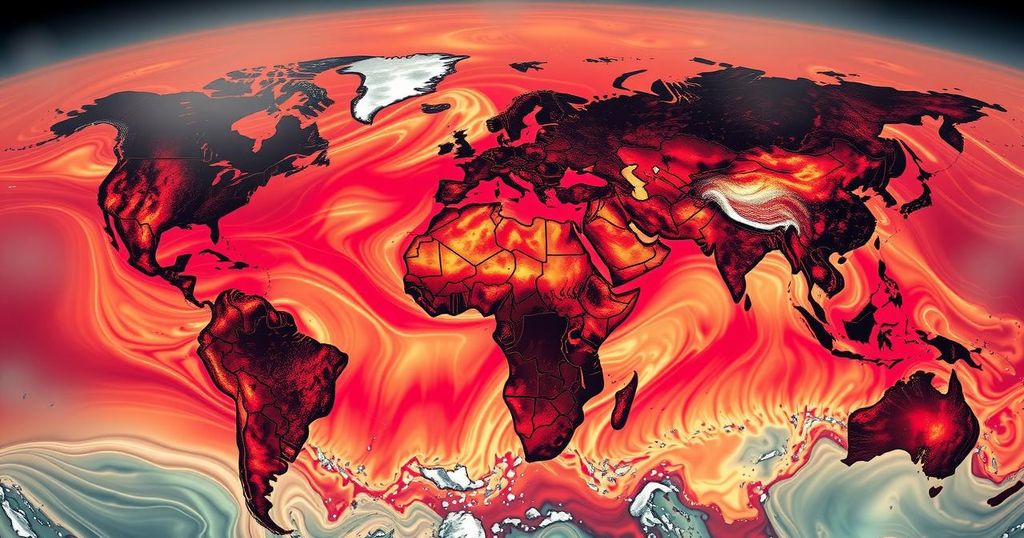In 2024, climate change caused an additional 41 days of dangerous heat worldwide, likely making it the hottest year recorded. A study revealed links between extreme weather events and climate change, with hundreds of lives lost and millions displaced due to rising temperatures and subsequent disasters. Urgent action is required to mitigate climate impacts, particularly in the most affected regions.
In 2024, human-induced climate change resulted in an alarming increase of 41 days of dangerous heat globally, according to a new analysis from researchers at World Weather Attribution and Climate Central. The findings indicate that this year marked a record-breaking trend in climate anomalies, with widespread devastating weather events exacerbating the suffering of millions. The year was poised to be the hottest on record, underscoring the urgent need for action to mitigate further climate impacts.
The analysis disclosed that extreme weather events in 2024, which claimed at least 3,700 lives and displaced numerous individuals, were significantly linked to climate change. Of the 29 extreme incidents studied, 26 exhibited clear connections to anthropogenic influences. In regions such as Northern California, West Africa, and southern Europe, stifling daytime temperatures and extreme heat caused school closures and even resulted in warnings about death rates. Notably, researchers indicated that 150 days or more of extreme heat were recorded due to these climatic changes, disproportionately affecting the least developed nations.
Friederike Otto, lead scientist of World Weather Attribution, emphasized the damaging impacts of climate change, stating, “As long as the world keeps burning fossil fuels, this will only get worse.” Moreover, Kristina Dahl noted that poorer countries faced even greater hardships due to heightened temperatures. The role of the El Niño phenomenon in exacerbating these conditions was acknowledged, though research predominantly indicated that climate change remained the more significant factor.
The findings align closely with the United Nations Environment Programme, which warned that without proactive measures to mitigate climate change, extreme weather patterns will become increasingly common. Nonetheless, Julie Arrighi of the Red Cross Red Crescent Climate Centre contended that the consequences of climate-related disasters are not unavoidable, advocating for adaptation and preparation strategies across nations.
The ongoing crisis of climate change poses a significant threat to global communities through increased temperatures and extreme weather patterns. The year 2024 has become a critical indicator of this issue, marked by unprecedented heat and various hazardous weather events that have had catastrophic consequences. Human activity, particularly the combustion of fossil fuels, contributes significantly to warming the planet, heightening the frequency and intensity of extreme weather phenomena. Research conducted by organizations such as World Weather Attribution and Climate Central aids in understanding the connections between these weather extremes and climate change, urging for actionable solutions before reaching critical thresholds set by global agreements.
In conclusion, 2024 has starkly illustrated the dire realities of climate change, with human activities contributing directly to a dangerous increase in heat and extreme weather events. The analysis of numerous incidents highlights the urgent need for global action to mitigate climate impacts, particularly in vulnerable regions. As seen, proactive adaptation measures and preparations could significantly reduce the adverse effects of such climate crises, stressing the collective responsibility of nations to act.
Original Source: www.detroitnews.com






